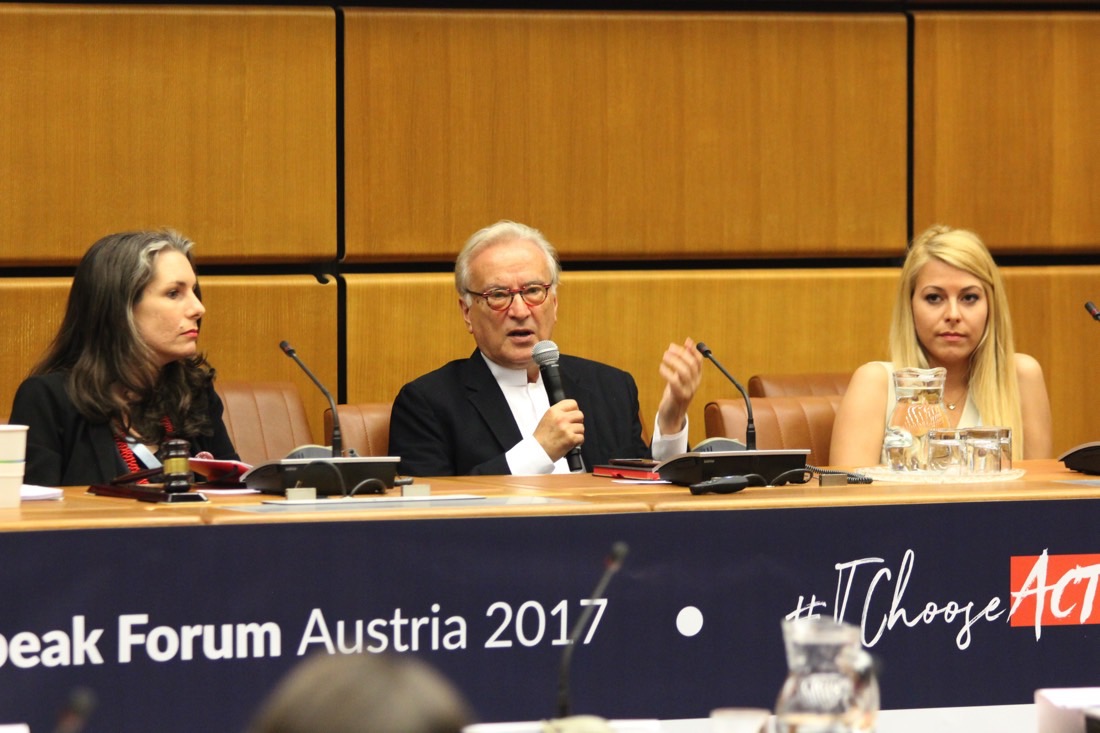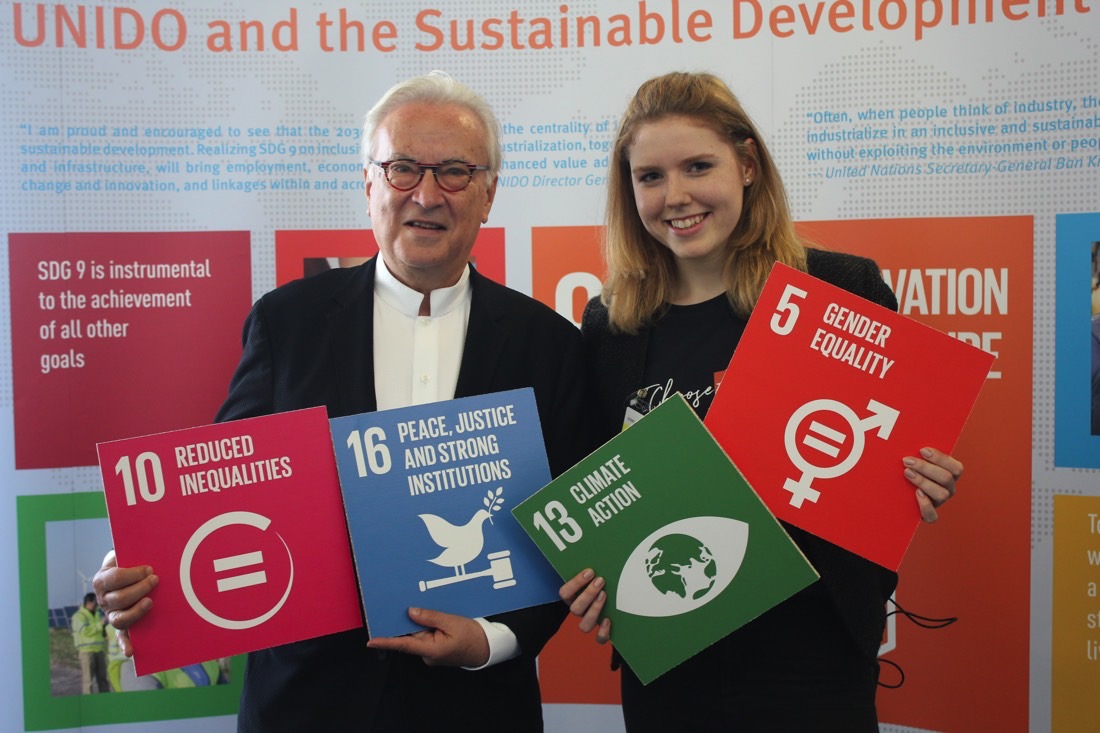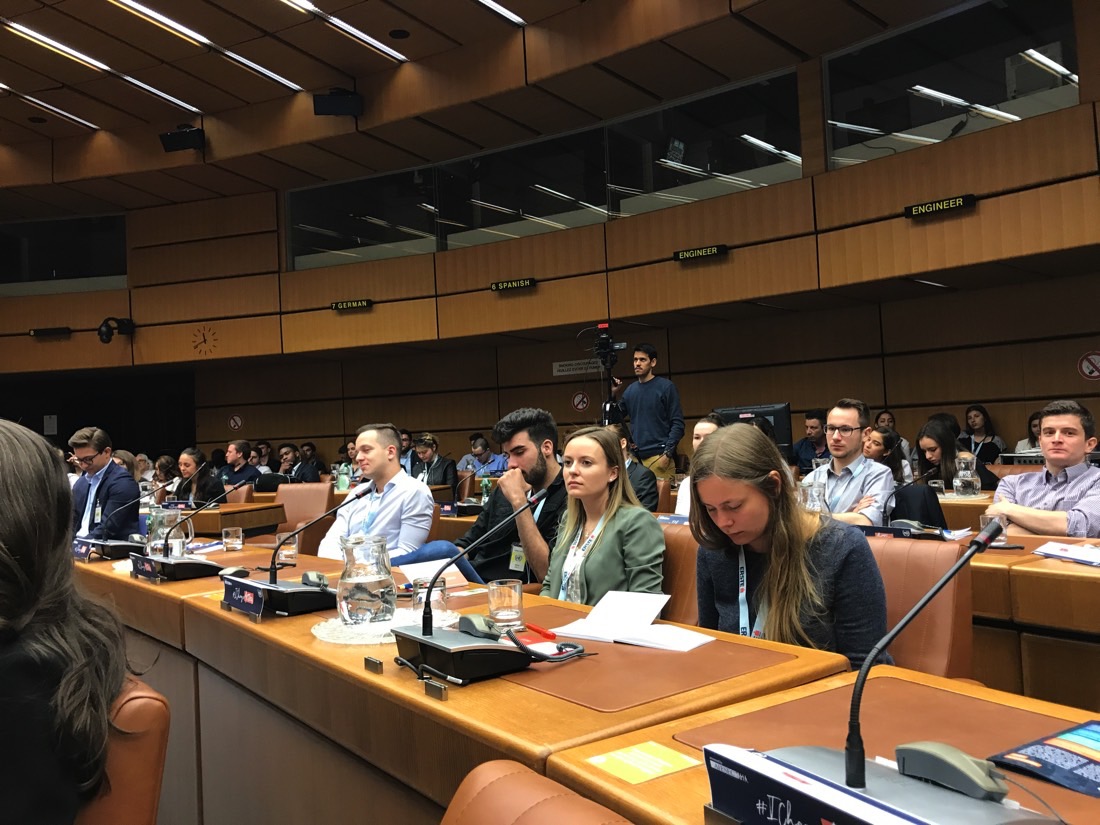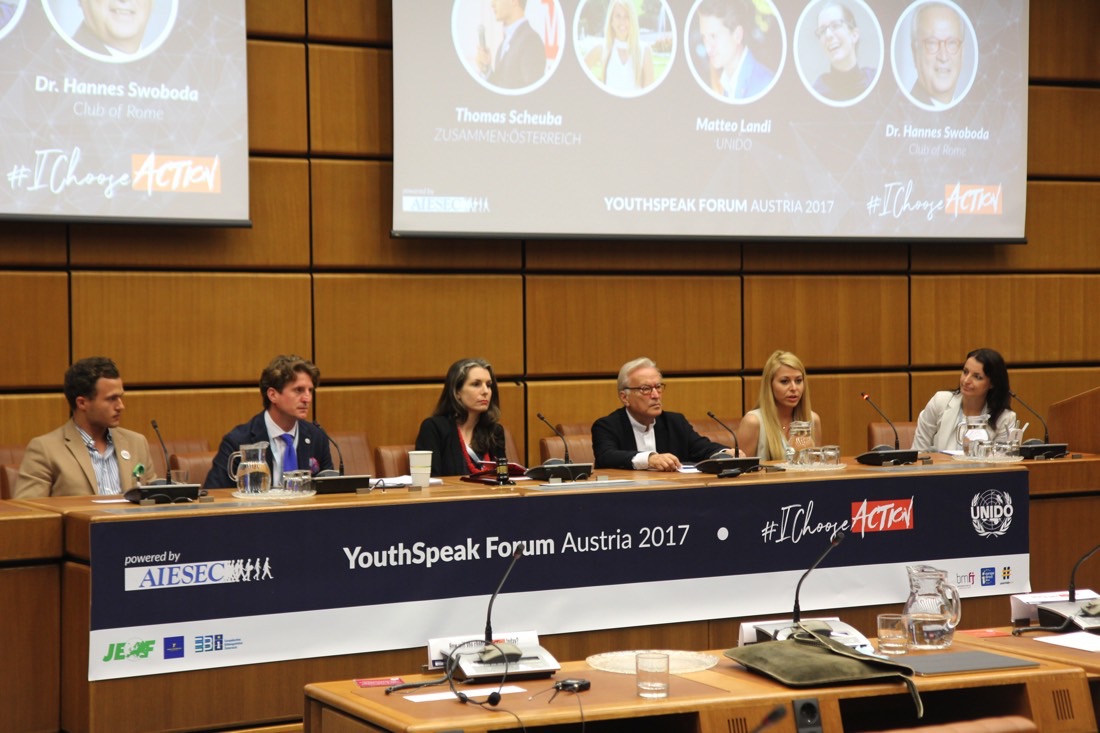A NEW WORLD DUE TO DIGITALISATION?
A century of visions
The last century offered many visions to mankind, especially in Europe. One of them was Communism, which promised the transition from a life of necessity to a life of freedom and ample supply of everything wanted. After the breakdown of the Communist World some saw the arrival of a world of permanent Liberal Capitalism. For Francis Fukuyama the End of History has arrived – even if he himself had some doubts about the benefits and the sustainability of such a world.

Parallel to the promulgation of liberal capitalistic societies the vision of a New World based on new technologies and digital economies was presented. The Social Media and Silicon Valley were the main responsible for this new vision.
But already Francis Fukuyama saw the high probability that people without clear dedications and aims beyond themselves would start to attack the very system of freedom and wealth in which they were embedded.
And recently Mark Zuckerberg asked the youth of this world to use the modern technologies and social media for purposes beyond their own direct personal interest. They should help to overcome injustices and care for environmental issues. Even if these appeals of Mark Zuckerberg may stand in opposition to some of Facebook’s policies and activities Mark Zuckerberg is right.
In fact the marriage of new and fascinating technologies with social and environmental engagements could be a way out of the void many people feel – in a society full of goods and services on the one side and still unacceptable degree of poverty and wars on the other side of the coin.
The Israeli scientist Yuval Harari said recently, that more people die today because they eat too much than people die because they eat too little. Famine today is no longer a natural disaster but man made and can be eradicated if people want to. So let’s do it. And there are many other targets which mankind should reach and implement to make the world more human.
New world wide goals
The Sustainable Development Goals – SDGs – elaborated in the framework of the United Nations offer a broad range of issues, which could be in the center of such a combination of the digital and the social, economic and environmental world. They are broader and more comprehensive than their predecessors, the Millennium Goals.

From the fight against hunger and poverty and improving health via quality education and gender equality to decent work, economic growth, sustainable cities and communities as well as peace and justice we find concrete aims to develop a better, more human and fairer world.
But how does the digital world come in?
To fight hunger we need careful and smart agriculture, which is not dependent on big companies and their interests. The farmers can steer the production according to the actual needs in his/her community and of course depending on the market he/she will deliver.
In addition we can bring some of the agricultural production closer to the cities where most of the people live. Digital monitoring and planning can help to organize a smart agriculture to the benefits of customers and nature.
E-medicine can bring doctors for diagnosis and therapy closer to the patients without personal movement by the doctor and/or the patient.
E-learning can improve education of many people who do not have the means of going to a school every day. It is also an instrument, which can be used for life long learning processes.
Digital informations about best practices and legislation in other countries give women a chance to promote gender equality.
Digital instruments used for automatization and robotics can free people from heavy and hazardous work.
Digital connection can give small and medium sized businesses and especially start ups a chance for promoting their business.
Smart energy, smart mobility and smart building can create the conditions for smart cities which could save energy without reducing people’s freedom to move and to enjoy life.
Digital information and exchanges can make people more aware of their rights and create new conditions for participation in public life.
Empowerment of citizens
All in all, a digital world could(!) be a world where people are more empowered and able to act without being dominated by „outside“ forces, be they economic or political forces.
People could be more aware of the consequences of their consumption and investment choices. They could evaluate the effects on the sustainability of the societies they live in and the world as a whole.

In that sense people could become their own „journalists“ reporting in the social media. They could become their own doctors using preventive medicine and applying – medically controlled – therapy. They could be their own teachers using internet for teaching themselves. The can become producers using 3D printing. They become bankers using e-banking. etc.
But if the „could“ is transformed into a „will“, that is if the possibilities are transformed into a – sustainable and socially acceptable – reality is another issue.
Such transformations will not happen automatically. It is up to the „society“ to organize the digitalization in a way, that is helpful for achieving – step by step – the aims of the SDGs. There are conditions to be met, in order to empower people to be active in the direction of the Sustainable Development Goals. The digital instruments should strengthen individual responsibility and their capacity to from coalitions in smaller or wider networks to achieve these respective goals.
To avoid a dystopia we need trust, social embedding and new jobs
Three major tasks have to be fulfilled, that the New World is not becoming a negative Utopia – a Dystopia – but a vision to give hope.
Firstly the people have to have – justified – trust in the digital instruments. Digital trust can only be created and preserved if there is principally a moral governance ruling the digital world.
The more data are produced, collected and used, the more we need a moral governance – by private companies and public institutions. Big Data with all its possibilities to combine personal data and personalize political campaigns and economic-consumer-strategies contains a lot of dangers. We must address these challenges with targeted policies and measures.
After the Brexit vote and latest US elections there was – and still is – a fierce discussion about Data mining and specifically „micro targeting“ and „psychographic profiling“. These detailed analysis of people’s attitudes and opinions on the basis of their postings and likings in Facebook played an important role for Trump’s team and the Brexit campaigners in targeted information or rather disinformation to voters.

Privacy issues and the fight against misuse of data collection and of course of cyber-crimes have to be seriously approached by the public and by all political forces. We need much more transparency which data are given to whom, in which form and how it is used. The property question of data is still not solved, but at least more transparency about the data flows is needed.
Furthermore the misuse of the social media for designing, planning and implementing terrorist attacks has to be addressed by politics and the media companies alike. As Robert Haggan wrote recently in the Financial Times, that it is in the interest of all „that the Internet is not a value free zone….-Technology is morally neutral, but providers and consumers are not.“ And public policy must care for greater responsibility by all sides: providers and consumers.
With the spread of the Internet and its rapid rise the dangers connected with it will also rise. We all have to fight against the possibility that the Internet including the Internet of things will became a „weapon of massdisruption“.
Secondly, not all what is technically feasible and possible should be allowed and accepted. In addition the technology must not dominate the digital world. It may lead to isolation and reduce people to nerds living in a parallel, phantasy world. People should continue to be embedded into families, friendship and the society in its different level.
To be connected with the world does not substitute connectedness with the neighbors. Global connectivity should be an additional quality of our life. People should still be social beings in its traditional sense.
Thirdly, a special attention should be given to the world of labour. Automatization and robotization are definitely destroying jobs. Yes, they are also creating new, qualified jobs. But estimations by the World Economic Forum show a net loss of jobs following automatization.
In addition to that net-loss the world of labour is changing dramatically with certain qualification no longer needed and new mostly higher qualification in urgent need. We should be prepared for these disruptions, otherwise we will realize also dramatic political disruptions.
We need a wide spread reskilling of our labour force. Especially if we must assume that about 65% of children entering primary school today will be in jobs that did not exist ten or even five years before entering the labour market. Life long learning especially e-learning will be a must.
What seems to be clear: deconnecting will not be the alternative in order to avoid the dangers of misuse of the internet. Not only would business penalize the disconnected but also personal contacts will suffer and many personal chances in business, education etc. but also for achieving goals for improving our world could no longer be used.
A new relationship between center and periphery?
An important issue without clear answers yet is the consequence of digitalization on the future of cities and the country side, especially the peripheric regions. In general we recognize a steady population growth in cities and/or urban agglomerations.
The forecasted death of the city did not take place, on the contrary. Cities will also in future be testing grounds for innovations.
It is interesting to see, that – until now – digitalization did not lead to strong geographical decentralization of jobs and homes. The fact that people can do a lot of their work from at home did not reduce the mobility and the attractiveness of cities and especially city centers.
Many scientists interpret this phenomenon as proof, that knowledge – different from information – is dependent on personal contacts and exchanges. Knowledge needs spill overs from and inside an innovative milieu.
Of course we are still in the beginning of the digitalization and many peripheric regions are not yet supplied with the necessary – broad band – infrastructure. But it seems that people will only use the digital world in a selective way and will not change some of their routines and preferences.
Consequently the global urbanization will continue. And that as such may contribute to the sustainability of our world as cities need less energy per head and still offer better educational and health services. But there is some empirical evidence that especially cities between 500.000 and 2 million inhabitants will grow-at least in the „developed“ northern world.
Sharing cities
But the fact that a rising number of people will live in cities demands a special responsibility to organize cities in a more sustainable way. It must be more and more a shared city.
Population is rising but open and public spaces are shrinking. Therefore we must use digitalization to give people a chance to share the spare space.
We have to monitor the development of the scarce green areas, the use of means of transportation from bicycles to cars to develop our transport infrastructure. And we have to prepare for driverless transport and cities, which would enable the use of cars by several people a day.
Smart energy/electricity grids must care for energy saving and the production and use of solar energy has to be advanced.
The mutual communication between men and things and between things – internet of things – can contribute enormously to sustainable, smart cities.
And it could be the cities, which could compensate failed politics on the national level as we can see now in the US, where many cities – and some states – want to continue to actively support the Paris agreement in spite of President Trumps decision to withdraw from it.
Energy saving in the center of necessary efforts
Especially in Europe we have to reduce our energy consumption as a high percentage of our oil and gas needed is coming from outside the EU. We are extremely dependent on energy and that mostly from countries with many democracy deficiencies.
The countries of „our“ energy resources have leaders who often deny climate change and especially the man made contributions to global warming. They often are in alliance with forces inside EU countries – or in the US – which combine a conservative/reactionary program with rejection of policies for environmental sustainability.
Digitalization is paramount for a smart use of energy in transport, work and households.
But it can also help in the production of energy, especially decentralized production in and by households and small businesses. And of coursed wide spread production and use of solar and wind energy is not feasible without digitalization.
A realistic approach is needed.
Not all foreseeable changes of our world are due to the digitalization as such. Bio technology and artificial intelligence are also massively changing our lives. But without digitalization they would not be possible.
The challenges are many, but many responsible people and forces are not ready to deal with them in a serious and realistic way. Very often we are confronted with overoptimistic but at the same horrific visions on the one hand and the denial of possible dramatic disruptions on the other hand.
In the world literature we find novels like „Brave New World“ by Alsous Huxley and „Animal Farm“ by George Orwell, where blind following the orders of the leaders is the normal behavior. Will the digitalization lead to such a New World where political leaders or the algorithm designed by some monopolistic companies will dominate our live? Will our future be one where more and more of our body will consist out of artificial parts in order to prolong our life?
Yuval Harari expressed in his recent work „Homo Deus“ – Man as God – his fear that emotions will no longer be the optimal algorithms. Algorithms of Google and Facebook know much better how you feel, so you should let them decide: „Listen to the algorithms, they know how you feel“. In former tines God was the creator, in future it will be men, especially those designing the algorithms.
Personally I do not think that the passiveness due to the overriding role of algorithm is unavoidable. But maybe I am too optimistic. But we should try to use the digitalization and the respective algorithms in a responsible way to make our world sustainable without loosing our human characters.
Carlo Ratti, one of the most prominent experts – and enthusiast – on the digital future of cities wrote recently: „Like the beginning of the Internet todays’s beginning of the Internet of Things will require a lot of trial and error. The safety and security of the systems we are building is the crucial factor. …We will need innovators and regulators to work closely together with regulations closely following technical progress and fixing the problems that will surely emerge“.
